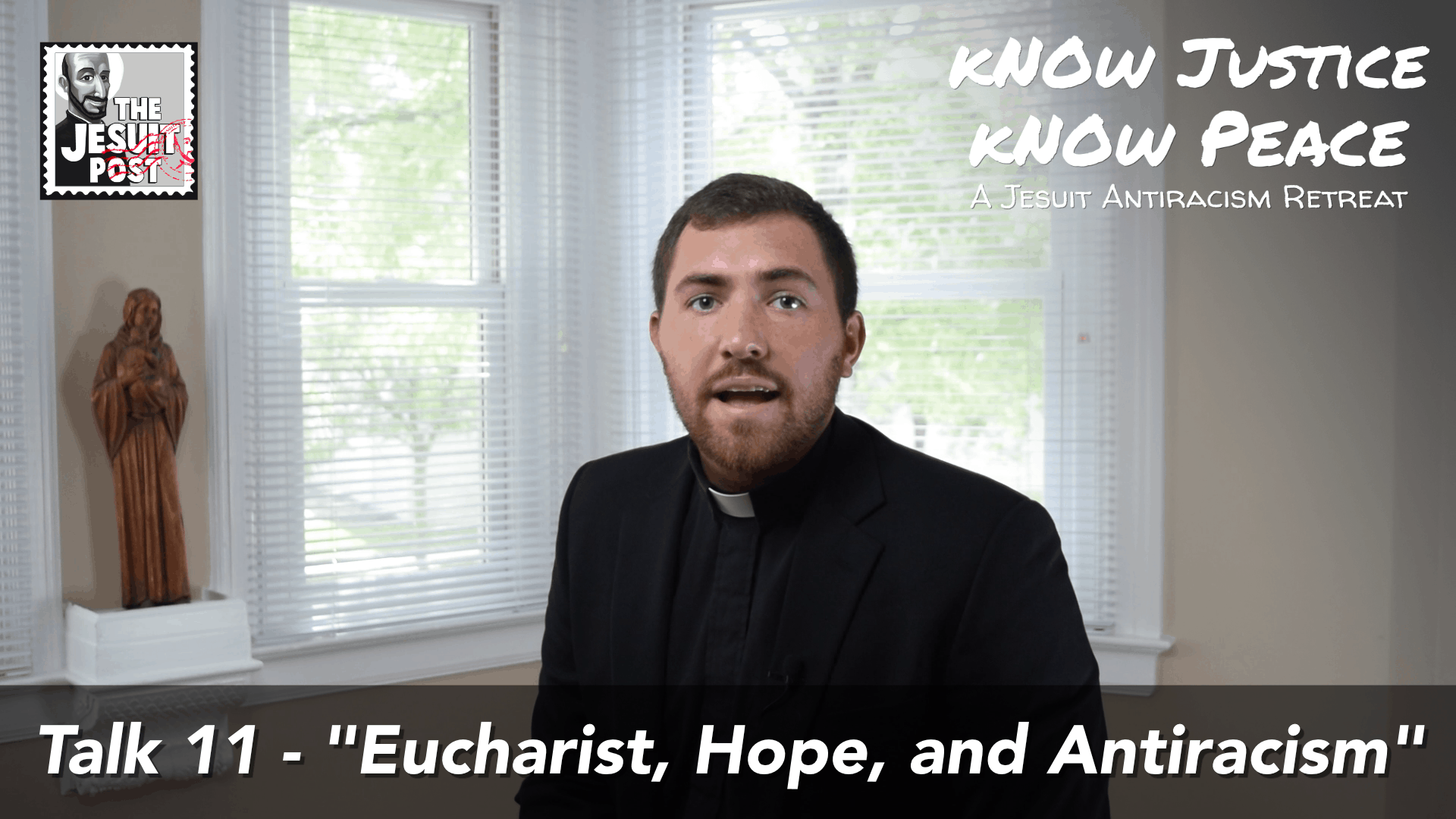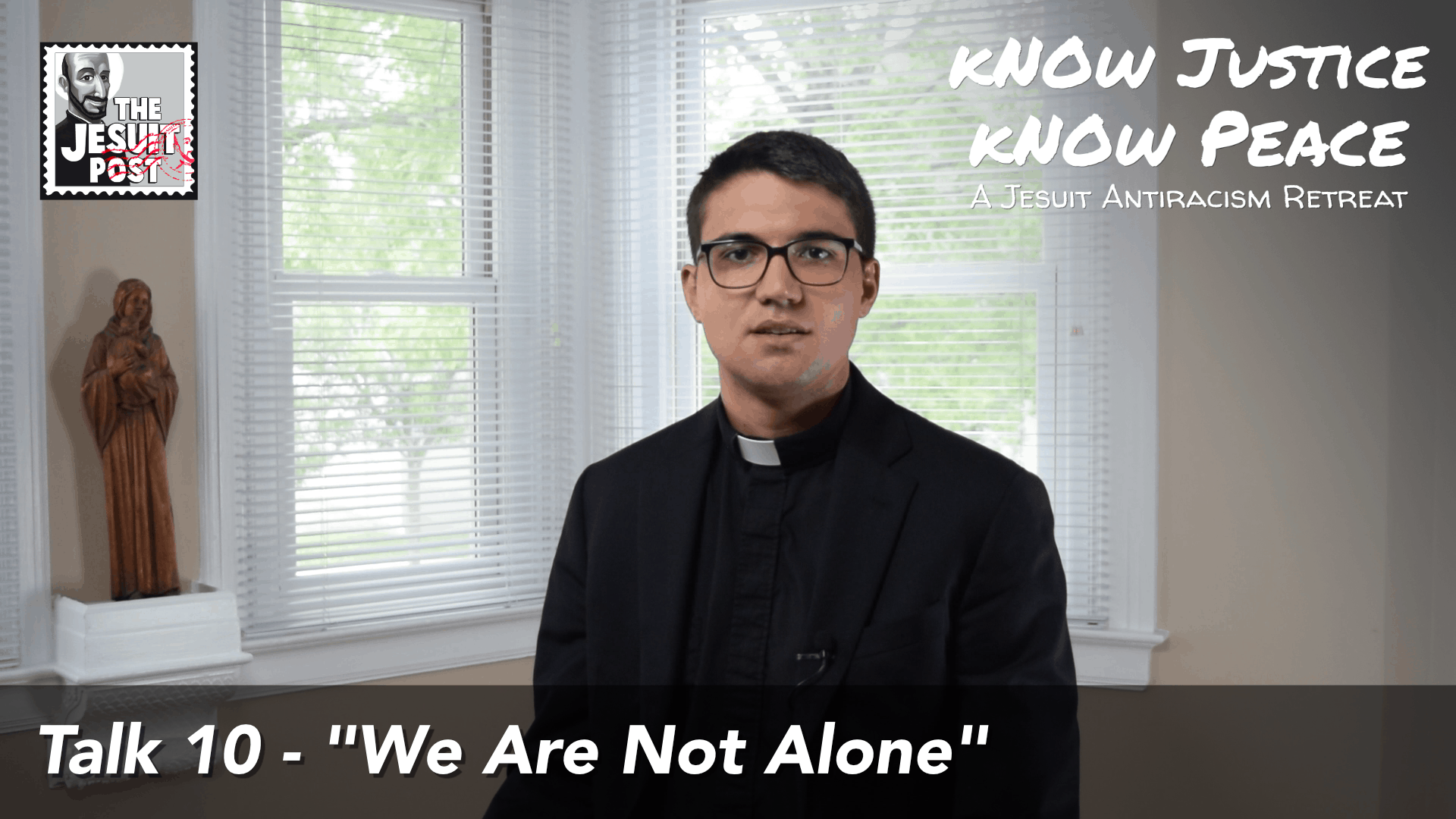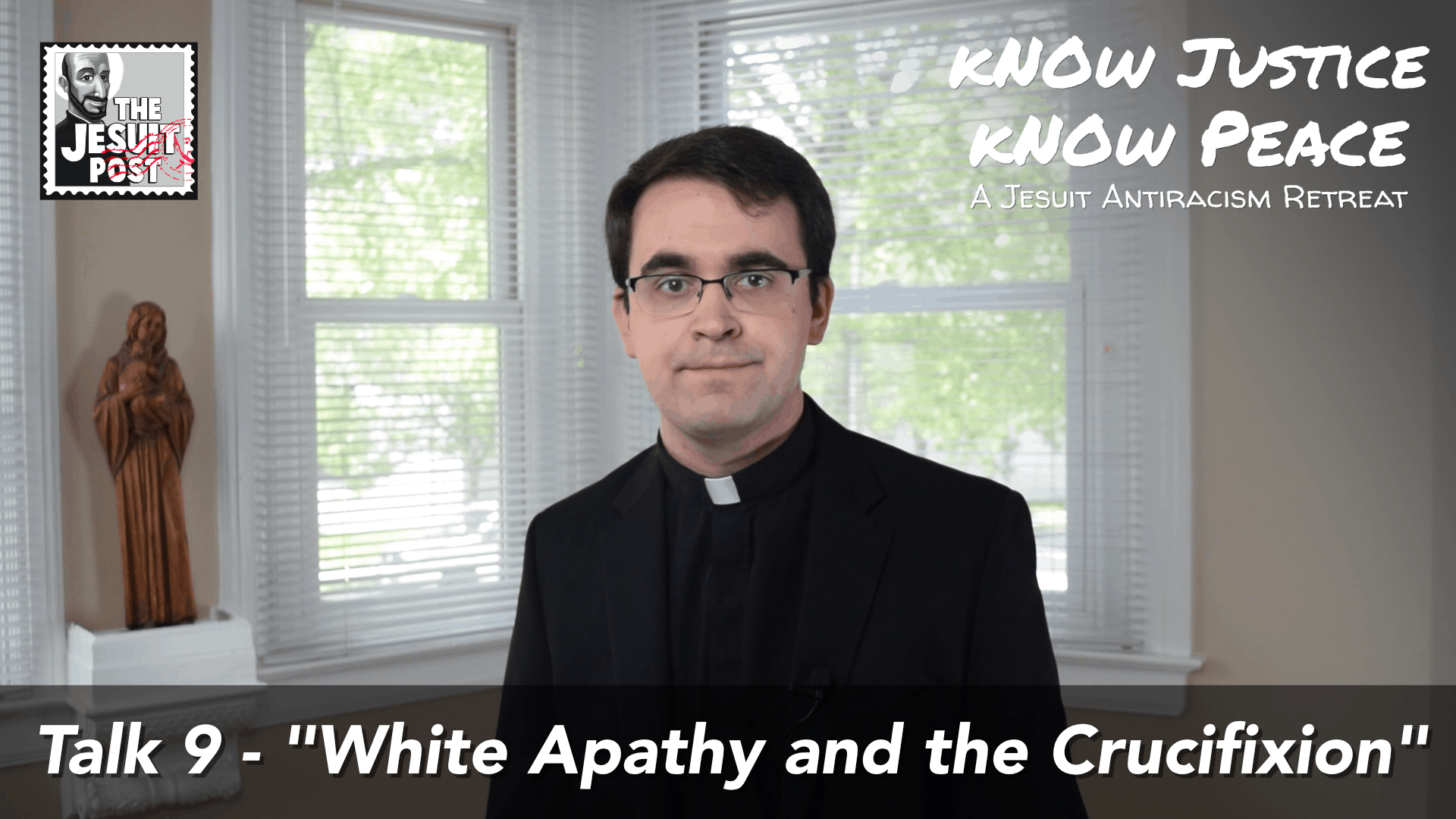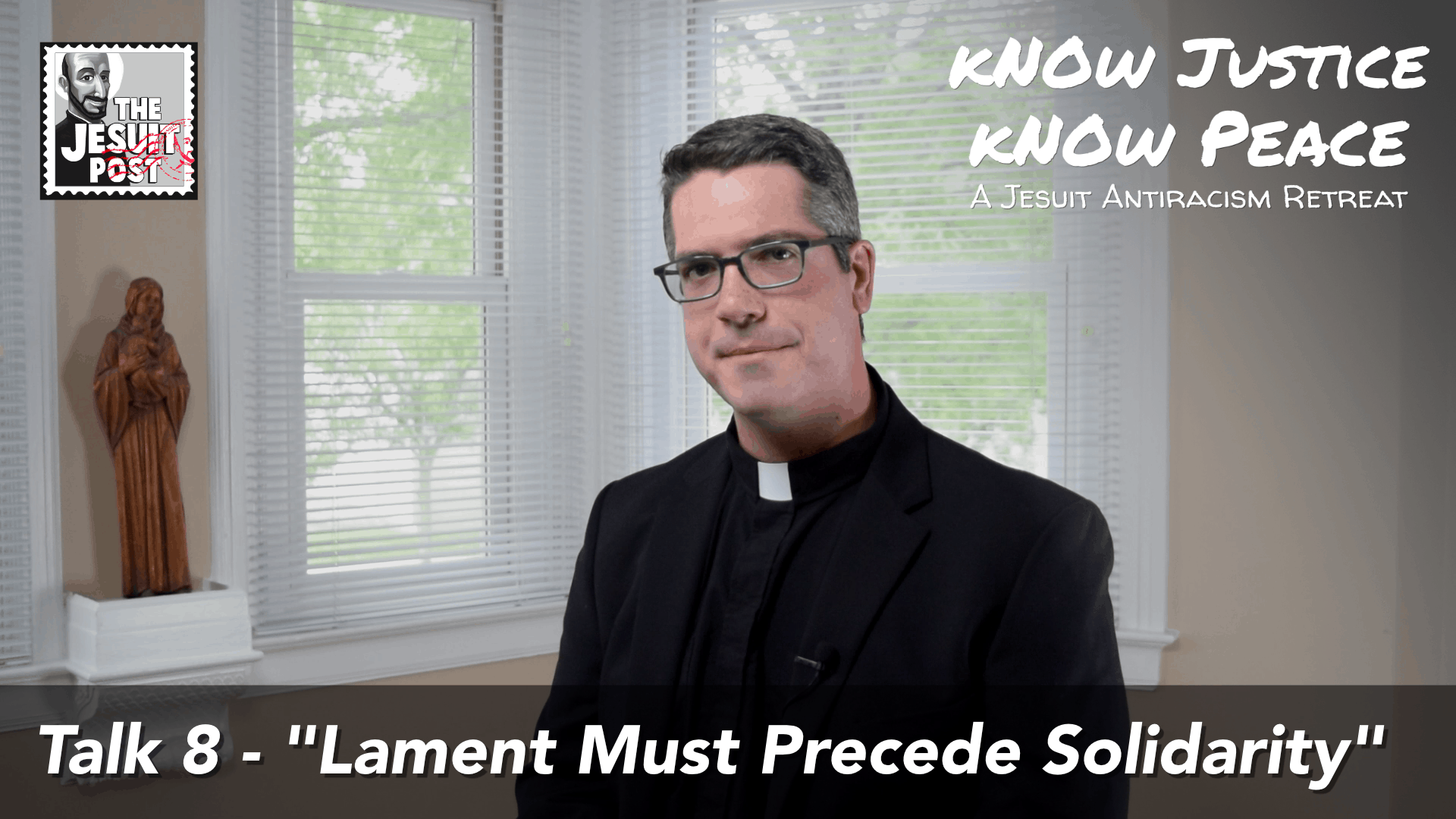Whose status or opinion do we care about the most? Some said that Jesus did not regard anyone’s status or opinion, but Austin Kleman, SJ, reflects on how Jesus calls us to focus on what is most important.
KPop Demon Hunters Is an Ignatian Fever Dream—and That’s a Good Thing
What does an animated musical about a Kpop group have to teach us about Ignatius’s rules for the discernment of spirits? Andrew Milewski, SJ, uses “KPop Demon Hunters” to help us understand how the spiritual world operates on the human heart.
Grief, Relationality, and Animals: A Call to Bother to Love
Grief at the death of animals reveals a moral obligation we too often ignore. Daniel Mascarenhas, SJ argues that if we dare to feel this grief, it becomes a call to love them as fellow creatures of God.
Unstoppable Grace: Sacraments and Sinful Ministers
Reflecting on his current studies in theology, Josh reflects on how a hundreds-year-old debate on the sacraments touched his own life and brought him healing.
Eucharist, Hope and Antiracism | Know Justice, Know Peace: A Jesuit Antiracism Retreat
The Eucharist, which is the source and summit of our faith, completely defies the logic of racism. Like the disciples on the road to Emmaus, Jesus’s breaking of the bread impulses us toward our community with renewed hope and consolation. Peter Bell reflects on letting the Body of Christ renew our antiracist commitment to one another.
Transcendence: A Poem About Becoming More Fully and Authentically Human
When I take a more honest look at life, with its’ beauty, and also its’ darkness and suffering, I’m drawn to see the meaning of seeking something that transcends worldly pleasures or pursuits, even the willingness to sacrifice those things. And I want to affirm this desire to “transcend” is not an escape from reality, nor is it inhuman. It is rather a call to become even more fully and authentically human concretely in the world. Chris Williams, SJ, invites us to see this transcendence in his newest poem perfect for prayer and reflection.
We Are Not Alone | Know Justice, Know Peace: A Jesuit Antiracism Retreat
Where is the Risen Lord in the racism we’ve been confronting for so long? Jesus conquered sin and death as He rose from the dead. But his wounds were still there when He showed up to his disciples. In the beginning of the fourth week, Eric Couto reminds us that our hope and joy as Christians comes not from naivete, but from our faith that Jesus walks with us, as we transform the painful realities of our world.
Antiracism is Not a Game
If it’s US vs THEM and we are intent on scoring points, we are not making antiracist progress.
White Apathy and the Crucifixion | Know Justice, Know Peace: A Jesuit Antiracism Retreat
Grieving with others is not the only way we commit to solidarity. Becoming aware of one’s participation in the oppression of others, is another way of opening the eyes of the heart and deciding to be responsible. Brian Engelhart, SJ, describes the apathy White people often exercise when dealing with the realities of racism that affect Black, Indigenous, and People of Color (BIPOC), and finishes the third week of our “Know Justice, Know Peace: A Jesuit Antiracism Retreat” with one contemporary example, as well as with an invitation to get rid of indifference.
Lament Must Precede Solidarity | Know Justice, Know Peace: A Jesuit Antiracism Retreat
Some realities in life can only be known through tears. The participation of Black, Indigenous, and People of Color (BIPOC) members in antiracism is not a hobby or an optional venture: it’s a matter of survival.They do not have the luxury that White people have to retire from the conversation of racism and flee from its painful realities. Matt Briand, SJ, invites us to put aside our fear to weep with those who weep because of racism, for true Christian love suffers along the beloved, and commits to justice.






